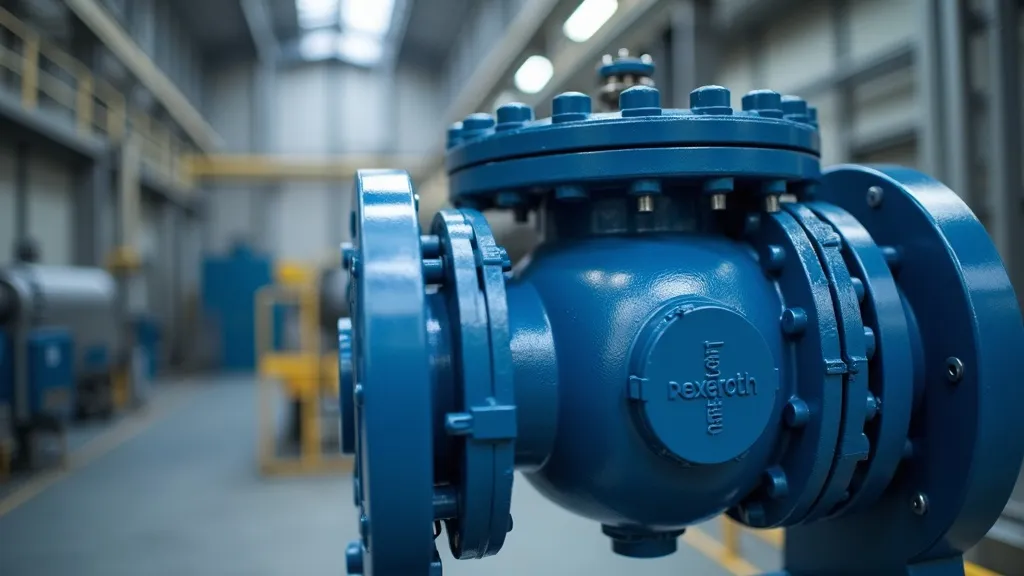Rexroth valves are quintessential components in diverse industrial applications, renowned for precision, reliability, and seamless integration into hydraulic systems. These valves serve as essential control devices, managing fluid flow, pressure, and direction efficiently. Their design and functionality make them indispensable across various sectors, from manufacturing to energy.

Rexroth valves have established themselves as pivotal elements in modern industrial settings. These valves are integral in controlling hydraulic systems, ensuring that the management of fluids is both precise and efficient. The exceptional durability and innovation that characterize Rexroth valves make them foundational in industries ranging from automotive manufacturing to renewable energy. Their role cannot be overstated, as they not only facilitate the seamless operation of machinery but also contribute to overall system efficiency and long-term sustainability in various applications.
Functioning as the control centers of hydraulic circuits, Rexroth valves regulate flow rate, control direction, and maintain pressure levels in various industrial processes. These valves operate by managing the hydraulic fluid flow to machinery and components, ensuring that the desired output is achieved without unnecessary energy expenditure or fluid waste. Their robust design allows them to withstand high-pressure environments, making them suitable for tasks that demand precision and strength. Rexroth valves are also known for their ability to minimize energy consumption while maximizing performance efficiency. For instance, the use of proportional valves can adjust the oil flow based on the demands of the application, further enhancing energy savings.
The versatility of Rexroth valves allows them to be deployed across a myriad of sectors. In the automotive industry, these valves are critical in assembly lines where high precision is required for tasks such as body frame assembling or painting. They enhance the accuracy and efficiency of robotics and automated systems that execute repetitive tasks with precision, thereby improving throughput and product quality. In the construction equipment industry, Rexroth valves contribute to the function of machinery like excavators and loaders, optimizing their performance and safety measures.
The agricultural sector also benefits from Rexroth valves, as they enhance the efficiency of hydraulic tractors and harvesters, enabling more precise control over planting, spraying, and harvesting processes. In the energy sector, Rexroth valves are integral in the operation of wind turbines and solar panel trackers, allowing for the efficient conversion and management of renewable energy sources. The application of these valves extends beyond just tractors to also include the hydraulic systems found in irrigation systems, ensuring optimal fluid management and crop yield.
| Industry | Application |
|---|---|
| Automotive | Ensuring precision in assembly lines' hydraulic systems |
| Construction | Supporting machinery operation such as excavators and loaders |
| Agriculture | Enhancing the efficiency of hydraulic tractors and harvesters |
| Energy | Integral in the operation of wind turbines and solar panel trackers |
The incorporation of smart technology in Rexroth valves ensures that they remain at the forefront of hydraulic control solutions. With advancements in digital connectivity, these valves are increasingly integrated with IoT platforms, allowing for real-time monitoring and adjustments to optimize system performance. This capability provides industries with a competitive edge by reducing downtime and predictive maintenance requirements. For instance, IoT-enabled Rexroth valves can send alerts when deviations from normal operating conditions are detected, allowing for proactive maintenance interventions. This predictive approach not only enhances operational efficiency but also curtails costs associated with unscheduled breakdowns.
Additionally, the development of AI-driven analytics offers deeper insights into hydraulic systems' performance, empowering engineers and operators to make data-driven decisions. By leveraging machine learning algorithms, companies can analyze historical data and optimize valve settings to improve responsiveness and reduce energy consumption further.
Rexroth offers a range of valve types tailored to specific industrial needs. These include:
Moreover, Rexroth valves come with features such as integrated pressure sensors, adjustable flow rates, and customizable sizes to meet specific system requirements, which positions them as versatile solutions across various applications. Understanding the characteristics of each valve type helps operators select the most appropriate solution for their hydraulic needs.
Understanding where to source Rexroth valves is crucial for maintaining system integrity and performance. Partnering with authorized suppliers ensures that customers receive authentic and reliable products. These suppliers often provide additional services such as technical support and customization options to meet specific system requirements. Factors to consider when selecting a supplier include their reputation in the market, the range of products they offer, and their ability to provide timely delivery and after-sales service.
It is also beneficial to maintain a good relationship with suppliers who can offer insights on new products, innovations, and trends within the hydraulic systems domain. Such collaborations can lead to access to cutting-edge technology and enhanced operational efficiencies for organizations utilizing Rexroth valves.
In summary, Rexroth valves play a crucial role in a wide array of industries by offering reliable and advanced hydraulic control solutions. Their robust design, enhanced by technological advancements, ensures that industries can achieve both efficiency and precision in their operations. Looking ahead, the future of Rexroth valves is likely to be shaped by ongoing innovations in automation and connectivity. As industries continue to seek solutions that enhance productivity while reducing their environmental footprint, Rexroth valves' potential applications will expand even further.
The integration of artificial intelligence and machine learning in hydraulic systems will open new avenues for performance optimization, enabling operators to anticipate system demands and adjust valve functions dynamically. As more companies embrace digital transformation, Rexroth valves will not only maintain their position as industry standards but also evolve to meet emerging challenges and demands associated with modern manufacturing and automation.
Thus, embracing Rexroth valve technology is not just a matter of operational efficacy; it is a strategic decision aligned with future trends in industrialization and automation, representing a commitment to quality, efficiency, and sustainability.